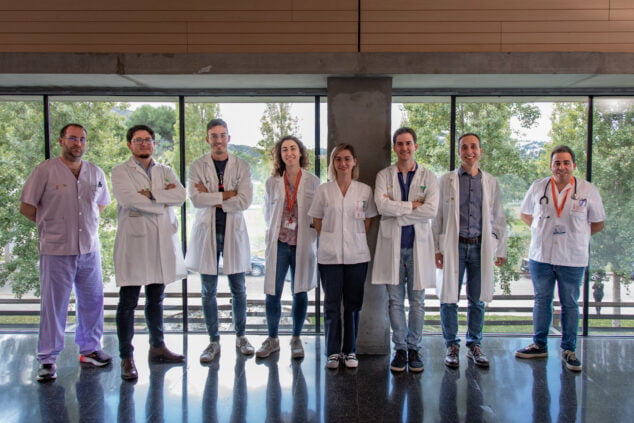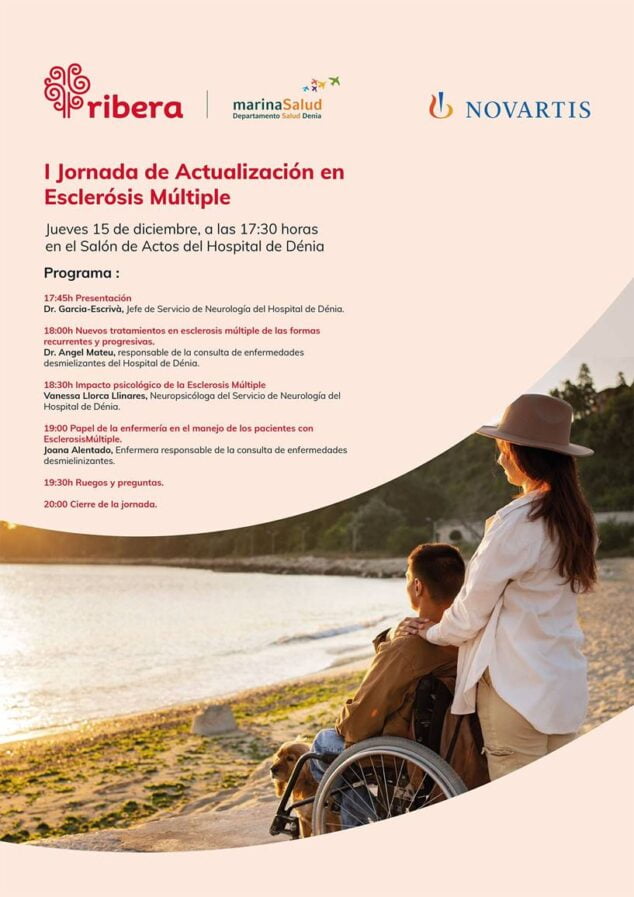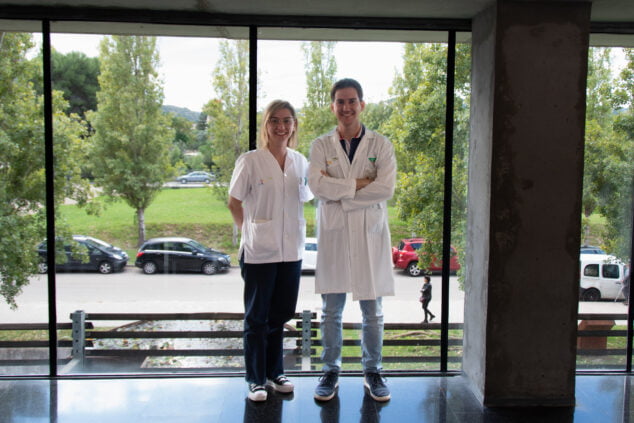The Dénia Health Department has identified, treated and monitored more than a hundred patients with Multiple Sclerosis, a pathology that affects 50.000 people in Spain and is the second cause of disability in young people, after traffic accidents.
To address these issues, the Neurology team at the Dénia Hospital has organized a 'Disease Update Day', aimed at patients with Multiple Sclerosis and their families.
The presentation of the event, which will take place on December 15, at 17:30 p.m. in the Assembly Hall of the Dénia Hospital, will be carried out by the Head of the Neurology Service, Dr. Alexandre García-Escrivà. The specialist will talk about the new treatments, recurrent and progressive forms of Multiple Sclerosis.
Next, the Neuropsychologist, Vanessa Llorca, will address the psychological impact of the pathology; while the Nurse responsible for the demyelinating diseases consultation, Joana Adelanto, will explain how these patients are managed.
According to the Head of Neurology of the Dénia Health Department, in recent years there has been a boom in new drugs, which have managed to modify the course of the disease and, in some cases, stop its progression. “It is, without a doubt, a great advance, emphasizes Dr. García-Escrivà. However, the challenge now involves making a correct selection of these treatments to offer them in a personalized way for each patient, almost à la carte”.
To apply individualized treatment, the Dénia Hospital has a specific consultation for demyelinating diseases, made up of a specialist physician and a nurse specialized in the management of this type of patient. In it, the treatments are parameterized, according to genetic factors and/or the parameters offered by tests such as Magnetic Resonance or lumbar puncture.
Multiple sclerosis
Multiple Sclerosis can have a genetic, environmental, or viral basis. In addition, it affects women more than men and is usually diagnosed in young people. There is also more casuistry as we get closer to the poles of the globe, both the North and the South.
Multiple Sclerosis has different types, some more aggressive, which are the forms called progressive. Others are declared with buds; are the recurring
Patient profile is that of a young person, woman, with neurological deficit: loss of vision, sensitivity or mobility in a part of the body.









